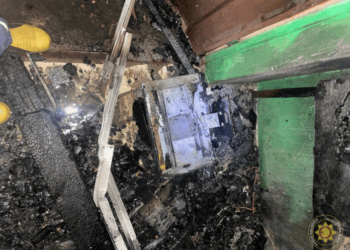![9938279021220_3516195247777[1]](https://voicefmonline.com/vfm/site/wp-content/uploads/2015/11/9938279021220_35161952477771-300x175.jpg) When you are a sickle cell person, it changes not the fact that you are also a human being with beating desires and burning aspirations. Equally competing for your attention is a range of activities, but in all these engagements, either trivial or important, the sickle cell person should develop a skill: the ability to pay acute attention to detail. Attention to detail is required in every facet of life and to the sickle cell person, it is cannot be compromised upon.
When you are a sickle cell person, it changes not the fact that you are also a human being with beating desires and burning aspirations. Equally competing for your attention is a range of activities, but in all these engagements, either trivial or important, the sickle cell person should develop a skill: the ability to pay acute attention to detail. Attention to detail is required in every facet of life and to the sickle cell person, it is cannot be compromised upon.
Attention to detail is so important and a non-negotiable acquisition, that the sickle cell person need to have in his or her bid to survive through some of the bouts and uncomfortabilities of the disease. When you pay attention to detail, incoming stimuli or action can be assessed and analyzed for any threat to your health. When you pay attention to detail, you will know what caused your systemic imbalance (or some abnormality in your body). When you pay attention to detail, you will know that an action you engaged in, the type and amount of food you ate, a sitting position you adopted, the angle of your desk to the AC in your office, the coldness of your room, the many times your car bumped in those potholes and the long hours you were stuck in traffic with your legs on the brakes, the loss of lots of blood you had from that monthly bleeding, the onset and type of trimester of your pregnancy, and myriad of other actions are the cause of a problem that you are having. You will know because you do nt take things for granted. You will know because you sit alone and introspect. You will know because you do not all the time follow the bandwagon phenomenon. You will know because your life depends on it. Without attention to detail, acts and actions that are not supposed to be undertaken will be wrongfully embarked upon and the consequences can be fatal.
Without attention to detail, you cannot identify the various thresholds of your bodily system, you cannot recognize the limits of your capabilities, you cannot detect the extremes of your vulnerabilities or the heights of your strengths and consequently, ignorance of these areas will lead to ignorance in not knowing when to say no to assignments and projects being packed on your desk (specifically by lazy workplace colleagues who wants to take advantage of your kindness), when to say enough to the series of workplace meetings and boardroom discussions, when to say no to the invitation of friends to social events like parties, when to say no to the hurdles of academic group discussions (or what we call tutorials when every group wants you to drop in and explain a topic) and when to say no to foolhardy decisions (like going bare-chested or in bikini at relaxation resorts with friends or colleagues, and spending hours in the name of taking a swim at a poolside, all in the name of pleasing friends).
Attention to detail is important in the life of every human being, but in the life of the sickle cell person, it is non-negotiable. When you fail to develop attention to detail, you are planning you’re your own disaster. To not acquire and hone your attention to detail, you are likely to have this: an incoming pain crisis, and not knowing it before it pounces on you is deadly. Therefore pay attention, and pay it to a great detail. Some people say that most sickle cell persons are smart or brilliant. Though there is no empirical research to document and measure this brilliance, it is quite evident in several instances. I have come to realize that keen attention to detail and a thorough and deep introspection can be subsumed as one of the factors that can be employed in explaining such instances of wisdom and smartness on the part of persons with sickle cell disease. So if you will develop the attention to detail, do develop it with seriousness, for it helps in other areas.
Contact Details
Email address: torgbuimichael@yahoo.com/torgbuimichael@gmail.com
Contact Number (+233) 0243528250
If you need also for us to speak on the condition to a group, educate in a seminar, or offer advocacy on any platform, do not hesitate to call us.
If you are reading this and you know of a good publisher, (local or international) connect us so we can help publish our manuscript of over 200-page on the condition.


































